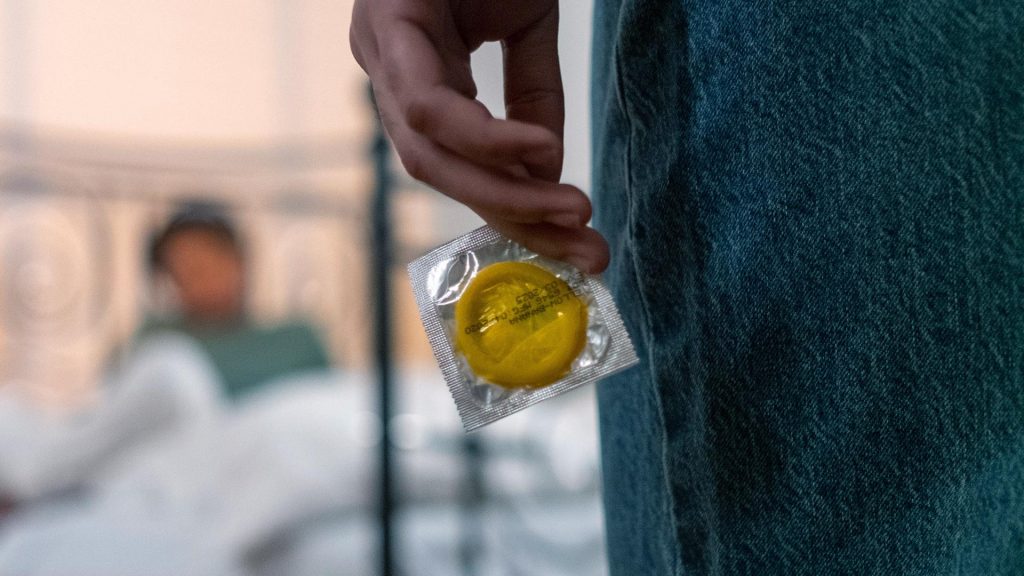Real talk: what you need to know about sexually transmitted infections
Sexually transmitted infections (STIs) — also called sexually transmitted diseases (STDs) — are common in Australia. About 4 million Australians report having an STI at some stage in their lives.

But even though STIs are common, many people still find it hard to talk openly about them. We aim to help Australians overcome that. We want to help remove any stigma so that people get timely medical care and advice.
That’s why we use the term STI, rather than STD. Not all infections cause disease symptoms. But all STIs carry a risk of transmission.
Here we cover some common STIs, how to talk about them with a GP, and the recommended treatment and management strategies.
Common STIs
An STI is a condition that passes from one person to another through sexual contact. They can be passed on during unprotected vaginal, anal or oral sex. An STI could also be transmitted through sharing needles or breastfeeding.
You can have an STI without having any symptoms. Many STIs have similar symptoms, which are summarised below.
| STI symptoms in women | STI symptoms in men |
|
|
Chlamydia
Chlamydia is a common STI caused by a type of bacteria, called Chlamydia trachomatis. It’s the most frequently reported infectious disease in Australia, even though many people don’t experience symptoms early on.
If left untreated, chlamydia can lead to more serious infection and infertility.
If a pregnant woman has untreated chlamydia, she can pass it to her baby during birth. Chlamydia can cause very serious health problems in newborns.
Genital Herpes or Herpes Simplex Virus
Genital herpes is caused by the herpes simplex virus (HSV). This is the same type of virus that causes cold sores.
As with cold sores, the herpes simplex virus remains in your body throughout your life. Usually, the virus is dormant. This means you don’t experience any symptoms from the virus. But from time to time, you can have outbreaks of sores and blisters.
Outbreaks or flares of genital herpes can be treated, but HSV can’t be cured.
It’s important to use protection when having sex – even when you have no symptoms. Your sexual partners need to know that you have HSV, so you can reduce the risk of passing HSV to them.

Genital Warts or Human Papilloma Virus (HPV)
The Human Papilloma Virus most commonly appears as warts on the genitals, mouth or throat. That’s why it’s often termed genital warts.
The biggest health risk with HPV is that some strains of the virus (e.g. HPV 16 and HPV 18) can lead to cancer. The strains that cause genital warts are unlikely to cause cancer.
There’s a vaccine available to protect against most HPVs that cause genital warts. It also protects against the high-risk HPV 16 and HPV 18.
Gonorrhoea
Gonorrhoea is another common STI caused by bacteria. Many people don’t experience symptoms.
If left untreated, gonorrhea can lead to:
- Infections of the urethra, prostate gland or testicles
- Pelvic inflammatory disease
- Infertility
As with chlamydia, a mother can pass gonorrhea to her baby during childbirth. Infection with gonorrhea can cause serious health problems in the baby.
HIV infection and AIDS
The Human Immunodeficiency Virus (HIV) attacks your immune system, weakening it so that it struggles to fight off infection. HIV is the virus that causes Acquired Immunodeficiency Syndrome (AIDS).
People with HIV who take effective treatment are unlikely to develop AIDS.
If left untreated HIV damages the immune system. Over time, this leads to serious infections and cancers.
The symptoms of HIV — mild flu-like symptoms — can be caused by other illnesses. If you think you could have contracted HIV, you should have a test as soon as possible. As with other STIs, early diagnosis and treatment is important.
Syphilis
Syphilis is caused by the bacterium Treponema pallidum and is quite rare in Australia.
It begins as a genital infection. But it can progress and cause serious health problems, affecting most organs of the body including the bones and joints, liver, heart and brain.
How to talk with a GP about STIs
STI prevention and management are part of the standard medical care a GP provides. You should feel able to raise any topic with a GP. If patients and doctors speak openly about sexual health, it’s likely to help improve treatment and minimise the spread of STIs through our communities.
Anyone who’s sexually active should speak to a doctor about STIs. Here are some questions you can ask a GP:
- How often should I be tested for STIs?
- What does an STI test involve?
- What vaccinations can I have to prevent STIs?
- What should I do if I have an HIV-positive sexual partner?
- What should I do if I have an HIV-positive test result?
- How can I talk to my partner about STIs?
We’ve all come to understand (because of the COVID-19 pandemic) the importance of testing to track and trace a serious infectious disease.
Likewise, if you have an STI, your GP will give you advice about contacting your past and present sexual partners, so they can be tested as well. Your GP can give you advice and resources to support you.
Your GP may also remind you about safe sex practices. You can talk with a GP for advice about:
- Different barrier methods that help prevent STIs
- How to raise the topic of STIs with a current or prospective sexual partner
- Getting tested with your partner before beginning a sexual relationship
Any discussion you have with an InstantScripts® GP is confidential and supportive. We can help you navigate your STI risk. And we can help you with STI tests and management in a conveniently and discretely.
To speak with an InstantScripts Doctor:
Request a ConsultationIf you have run out of your script:
Request a Script© InstantScripts
Level 8 / 637 Flinders St.,
Docklands VIC 3008

